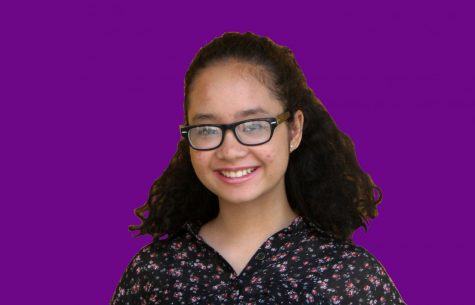Change led by students
On September 20th, 2019, a group of North’s students drove downtown to City Hall to join the Climate change protest. The group of students, Dominick Bartels, Hannah Miller, Nathaniel Smith, Caroline Schmeits, Virginia Holtzclaw, Dayton Bailey and I were all interested in a healthier environment and governments implementing more sustainable methods to prevent the destruction of the Earth.
When we got to the event, I was taken aback by how small the group of protestors were compared to places like Germany where there were thousands of protestors, or Lincoln where almost a thousand people reserved to attend the protest. Yet, knowing that a small population of Omaha residents came together to fight for a bigger population of the people was breath-taking.
We all had one common goal, and that was for our government to pass a bill that would provide a sustainable agriculture, no pipelines, and a healthier renewable energy. So when we picked up the pen to sign the petition, we were thrilled to have been apart of an event that is taking place all over the world.
At the protest, there were Creighton students, doctors, meteorologist, workers from OPPD, but we were united under one passion – a healthier home Earth.
While I got caught up in the chants, listening to older generation come up to the front and talk about how proud they were of the younger generation, and the dozens of posters, I noticed that there were a large group of Central students who attended the event.
The students came together holding posters and a banner, chanting about climate change. I was inspired by their large student activism and the unity they hold.
Students like Olivia Schicke said that Central students are the biggest help in promoting because there were posters in the bathrooms, and they spread the words through social media. They continued to raise awareness starting from a social setting where most youth are gathered which is uplifting to hear.
At North, students have held multiple events such as the walkout to protest against gun violence. Yet, we still need help promoting students to become more aware of social injustices and global issues that even though are not directly impacting our lives, are slowly but surely creeping into our daily lives.
Student activism is a wonderful thing that starts a dominos effect because when one person in a friend group is passionate about politics and creating a better world, the passion spread to their other friends.
People like Dayton Bailey, who attended the protest in Germany called Fridays for Future Movement said it was heavily student lead. They marched down the streets and chanted, and when other people saw it, they also joined the march.
While many are involved, there are still students who do not know much about many of the global issues, and do not get the exposure or resources to learn more. School can be a place where students can learn more about global issues and politic without having teachers’ political viewpoints pushed on them.
Students are more willing to learn more if it is from students at their school talking about things, they are passionate or protest and marches they have attended.
Bailey said, “Schools can be used as a place to promote activities like this so that way larger demonstrations can be organized so Omaha can become part of a larger movements.”
Students can hang up posters, spread the word through social media, start an organization at their school oriented towards their community and what they can do as students to better their community to be part of a larger group of people.
While most adults are proud and moved to tears, there are still certain people from the older generation that believe youth activism is a spontaneous act inspired by the current trends on social media, but social media has now become a broader platform to reach out to others.
Bailey said, “If there is an issue that is pressing and needs attention, it’s better to advocate for change than be complacent with the situation.”
The future is near. We cannot allow this to continue any longer than it has. We have to raise awareness to the younger generation at a younger age so they can form their own passions, and hope to gear them to a career that would enhance their compassion and give back to the community.


